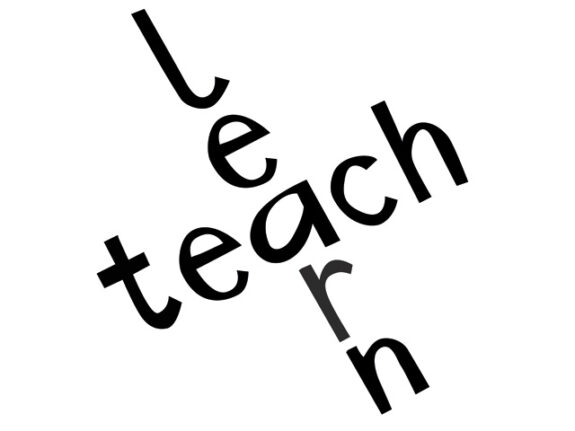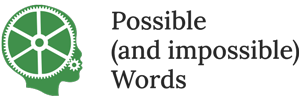
Growing grammar?
Or teaching or learning? A word missing, not just in English
Despite the complexity, speech and language are effortlessly acquired by the overwhelming majority of children without any external intervention in the form of overt teaching in about ten years. There has to be a highly evolved functionality to make this possible. But what sort of functionality is this? It allows humans to reliably navigate the necesary pathway from random experiences. On this fragile basis, the child constructs an extraordinarily intricate grammar. Is the functionality here strictly cognitive? Or is it biological? Plainly the grammar is not taught or learnt. Significant parts of the grammar were not known about until the first detailed investigations began in the early 1960s. Does the grammar grow? It seems that there is a word missing here. And not just in English.
By the biolinguistic assumptions here, the functionality by which speech and language are learnt has to be specified as part of the human genome. But any functionality specified by the genome can be misspecified to any degree.
The pathway would not be navigable unless speech and language were built as structures, with syllables built from different sorts of speech sound or ‘phoneme’, both consonants and vowels, from what are now known as ‘features’. The syllable combine with each other to form structures known as ‘feet’. Feet and parts of feet combine to form words. Words combine form phrases. Phrases combine to form sentences. These are the elements of grammar.
By a point originally due to William Holder (arguably the first speech and language therapist) in 1669, the features are thus a minimal defining property, not phonemes, as sometimes suggested.
All languages define their grammar on phrases, rather than words. So in English we say “the rightful head of the commonwealth’s responsibilities” with the ‘S at the end of the phrase the rightful head of the commonwealth rather than after the word head.
By these aspects of the framework here, the contrasts are universal, between vowels and consonants, between pronounced and unpronounced structure, between content and non-content words and elements like yes and no which are neither one nor the other, but vestiges of a system, by the proposal here, predating grammar. This primordial system may have been defined exclusively on discourse, rather than any more abstract system. But the way grammatical elements are organised varies from language to language, and thus have to be learnt along with the words. And children can have problems with any one or more of these elements.
Knowing without learning
Some of what adults know about language they cannot plausibly have been taught. Consider the following sentences:
- Sue walked before she talked
- Before she talked Sue walked
- Before Sue walked she talked
- She talked before Sue walked
In the first three of these sentences she may possibly be Sue, although not necessarily. But in the last she cannot be Sue. How do we know this?
Similar phenomena occur across a wide range of languages.
There are various theories seeking to explain how co-reference is blocked in just one out of four logically possible cases. By the framework here, this is by a special set of principles first identified by Tanya Reinhardt in 1975, defining a relation comparing a minimal degree of dominance in the hierarchy (by the framework here) to any equal or greater degree of dominance. This presupposse an approach to language outside either everyday experience or class room learning. And the simplest explanation of this remains the original one first proposed by Noam Chomsky in the 1960s that the principles of the language faculty are innately specified by the human genome.
This is often known as the ‘poverty of stimulus’ or POS argument for Universal Grammar. It is sometimes mocked on the basis, entirely false, that it absurdly implies that babies are born knowing how to talk. But this is a straw horse. Chomsky’s claim is only that the first-language learner does not need to consider every logically-possible analysis of what he or she happens to hear said, but only those analyses that fall within a certain learnability space, as Marlys Macken (1995) called it.
The natural process of investigating and exploring this space takes around ten years, very approximately, though perhaps significantly, the time before puberty. Eric Lenneberg (1967) called this the ‘critical period’. If language is not learnt during this period it is much more difficult later on. But there is important learning which needs to happen in the context of exposure and real-world experience. This starts within months as the first babbles echo the sound structures of the language which the baby hears being spoken around it and the first coos echo the intonations of the language. What this process should be called is not obvious. The term ‘learnability’ is in common use, but without any implication of learning in the usual sense.
In a novel way, it is proposed here, that the core of UG normally develops or is ‘learnt’ in the second and third year.
But this genomically specified process unfolds not in a vacuum, but in an environment in which the child is interacting all day and every day with more competent speakers – care-givers, other adults, older siblings. Nature alone is not enough. By the Speech and Language UK’s 2023 report, this nurture seems to have been critically disturbed by the Covid lockdown for a significant proportion of English preschool children. More catastrophically, the child known as Genie was completely and criminally deprived of nurture for the whole of Eric Lenneberg’s ‘critical period’ – in her case up to the age of 13. Susan Curtiss movingly describes the irreparable consequences of the deprivation. Genie would never learn to talk in anything resembling the normal way.

